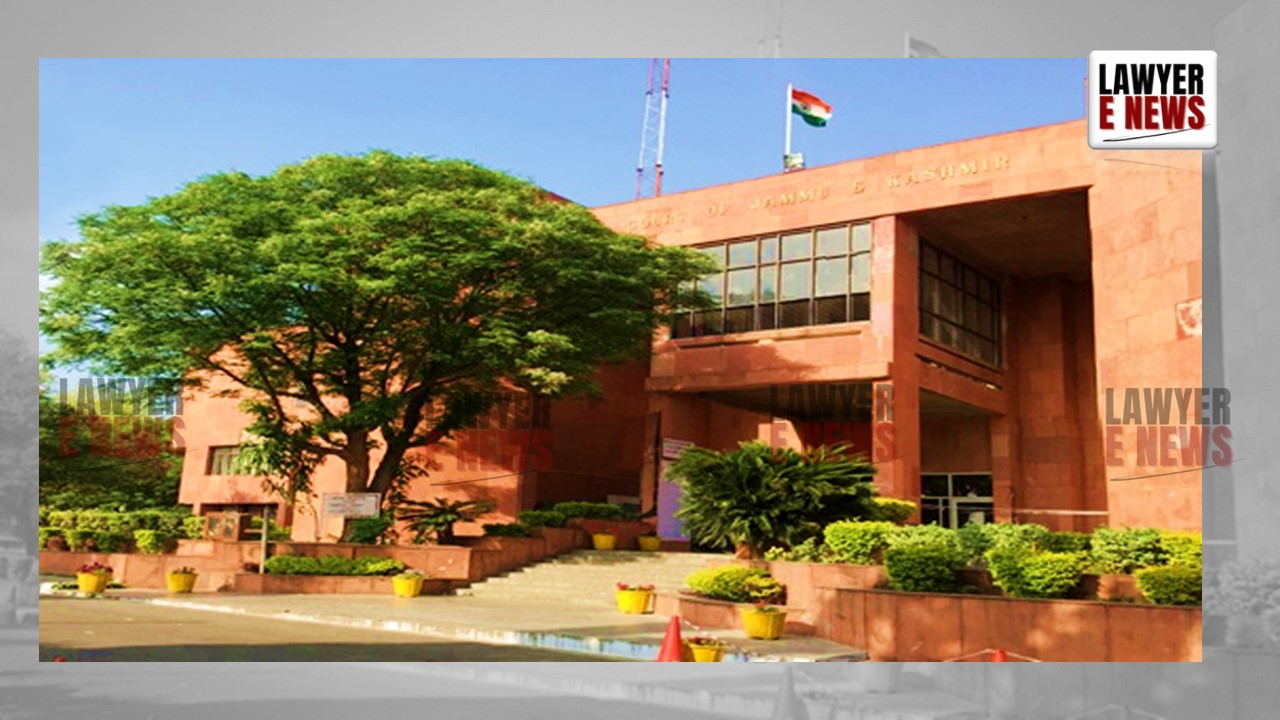-
by Admin
15 February 2026 5:35 AM



In a significant ruling, the High Court of Jammu & Kashmir and Ladakh, on November 19, 2024, quashed an FIR filed under Sections 498-A and 506 of the Indian Penal Code (IPC), citing the amicable settlement reached between the parties. Justice Sanjay Dhar, while delivering the judgment, emphasized that matrimonial disputes, being personal in nature, warrant judicial intervention to quash criminal proceedings when the parties have genuinely resolved their issues, even if some offences are non-compoundable.
"In matrimonial disputes or family conflicts, where the wrong is private and the parties have amicably settled their differences, continuing with criminal proceedings serves no purpose and amounts to abuse of the legal process."
The petitioners, including Mirbaz and his family members, sought the quashing of FIR No. 19/2023 registered at Police Station, Women Cell, Udhampur, on allegations of domestic violence and criminal intimidation filed by the second respondent, the complainant. The FIR was based on an application under Section 156(3) CrPC filed before the Chief Judicial Magistrate, Udhampur, which led to its registration.
Subsequently, the petitioners and the complainant resolved their differences amicably and executed a written compromise deed on September 12, 2024. The deed confirmed that both parties wished to withdraw all pending litigation to live peacefully. As part of the settlement, the complainant agreed not to pursue the FIR further.
The High Court, after verifying the compromise through the Registrar Judicial, recorded statements from both parties confirming the authenticity of the agreement.
The FIR included offences under Section 498-A (cruelty by husband or relatives) and Section 506 (criminal intimidation) of the IPC, both of which are non-compoundable under criminal law. The petitioners argued that the amicable settlement rendered the continuation of criminal proceedings unnecessary.
The Court examined whether it could exercise its inherent powers under Section 482 CrPC to quash criminal proceedings arising from a matrimonial dispute, particularly where some offences are non-compoundable.
Justice Sanjay Dhar, while quashing the FIR, made the following key observations:
The Court relied on the Supreme Court judgments in Gian Singh v. State of Punjab, (2012) 10 SCC 303, and Narinder Singh v. State of Punjab, (2014) 6 SCC 466. These precedents affirm the High Court’s jurisdiction to quash non-compoundable offences in matrimonial disputes where a genuine settlement has been reached. The Court stated:
"Even if the offences are non-compoundable, the High Court can quash proceedings to prevent injustice, provided the dispute is personal in nature and the likelihood of conviction is remote."
The compromise deed dated September 12, 2024, was verified by the Registrar Judicial. Both parties admitted to its execution and expressed their desire to end the dispute. The Court held that this genuine compromise eliminated the necessity of continuing criminal proceedings.
"Once the parties have reconciled and resolved their differences, forcing them to continue litigation would defeat the very purpose of the compromise and lead to unnecessary hardship," the judgment noted.
The Court emphasized that continuing criminal proceedings in light of the compromise would amount to an abuse of the process of law and waste judicial resources.
"In such circumstances, criminal proceedings serve no purpose other than perpetuating harassment, which is contrary to the interest of justice," the Court observed.
The Court reiterated that offences arising out of matrimonial disputes are primarily private and personal in nature. It noted:
"Matrimonial disputes and family conflicts are better resolved amicably, as they impact the lives of individuals and their families. The role of the judiciary should be to foster such resolutions."
After considering the facts, the High Court allowed the petition and quashed FIR No. 19/2023, along with all proceedings emanating from it. The Court concluded:
"The continuation of criminal proceedings would amount to grave injustice to the petitioners and fritter away the fruits of the settlement reached between the parties. Such proceedings would be an abuse of the process of law."
This ruling reinforces the principle that matrimonial disputes should be resolved in a manner that preserves relationships and avoids unnecessary legal harassment. By quashing the FIR, the Court highlighted the importance of compromise and reconciliation in family disputes, especially where the dispute is personal and the parties have genuinely resolved their differences.
Date of Decision: November 19, 2024
